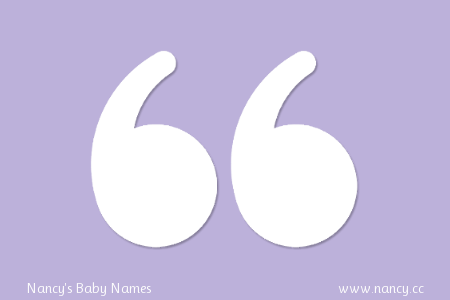From an Express article that reveals the Queen’s preference for the name Beatrice over the name Annabel:
The names of royal babies are traditionally approved by the Queen. But the monarch is said to have rejected the Duke and Duchess of York’s choice of Annabel for their first child.
The Queen found Annabel too “yuppie”, The Sun reported, and instead suggested Beatrice.
The name Beatrice was royal enough for the head of state but unusual enough to please Sarah, according to the newspaper.
Two quotes from an article in which the author argues that distinctively black names in America emerged long before the civil rights movement:
[I]n the 1920 census, 99% of all men with the first name of Booker were black, as were 80% of all men named Perlie or its variations. We found that the fraction of blacks holding a distinctively black name in the early 1900s is comparable to the fraction holding a distinctively black name at the end of the 20th century, around 3%.
…and second:
[W]e found that names like Alonzo, Israel, Presley and Titus were popular both before and after emancipation among blacks. We also learned found that roughly 3% of black Americans had black names in the antebellum period – about the same percentage as did in the period after the Civil War.
But what was most striking is the trend over time during enslavement. We found that the share of black Americans with black names increased over the antebellum era while the share of white Americans with these same names declined, from more than 3% at the time of the American Revolution to less than 1% by 1860.
From a 2017 article about UC Berkeley student (and mom) Natalie Ruiz:
Doe Library’s North Reading Room became Ruiz’s haven. “It was one of the few quiet places where I felt I could focus,” she says. “That season of my life was extremely dark; I didn’t know if I’d make it to graduation, or how I could possibly raise a baby at this time.”
One day at the library, she noticed light shining down on her growing belly, right over the university seal on her T-shirt and the words “fiat lux.” She and Blanchard had considered Lillian or Clara as baby names, but now the choice was made.
“I felt my daughter kick, and it occurred to me that clara in Spanish means ‘bright,’ and I imagined the way that this baby could and would be the bright light at the end of this dark season,” says Ruiz, who gave birth to Clara on May 15, 2014.
From an article about a Swedish woman who changed her son’s name because of a botched tattoo:
Local newspaper, Blekinge Läns Tidning, reported that 30-year-old Johanna Giselhäll Sandström had requested a tattoo of her children’s names, Nova and Kevin.
The tattoo artist didn’t ask the woman to check the spelling, which resulted in a tattoo that read: ‘Nova and Kelvin’.
[…]
After discovering the process of removing tattoos isn’t an easy one, Sandström began to realise the name was growing on her, so she opted for a less painful solution to the problem.
“We decided to rename the boy,” she said.
From a 2018 interview with entrepreneur Eden Blackman in The Telegraph:
For many entrepreneurs, starting a business often feels like bringing new life into the world. It’s not every day though, that your endeavours result in a baby named in your honour.
“That’s the pinnacle for me, it’s simply mind-blowing,” says Eden Blackman, founder of online dating business Would Like to Meet and namesake of young Eden, whose parents met on the site several years ago. “That is amazing and quite a lot to take on but it’s a beautiful thing.”
[Latest update: Apr. 2024]




